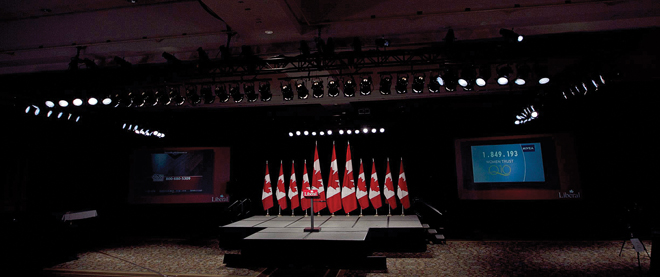A chance for the Liberals to take a chance
COYNE: The assumption the Liberals have a guaranteed place in Canadian politics is obsolete
Peter Power/The Globe and Mail
Share

The best way to understand the situation facing the Liberals is to think of the party as a hockey team. It has won several Stanley Cups in a row, but by the last of those cups, it was relying on a clutch of 43-year-old veterans. With their retirement, the team has no option but to spend a few seasons in the basement, rebuilding. If it learns patience, while the draft picks mature and the losses mount, the team may in time become a winner again. If it does not, it becomes the Leafs.
It is still not clear whether the party fully understands the predicament it is in. To be sure, it understands it lost the last election, and lost badly: the worst defeat in its history. But even if Liberals grasp the magnitude of their defeat, they do not seem to grasp its implications.
A case in point is the “road map to renewal” the party’s national executive released last week. The document is properly proud of Liberal achievements, and properly bracing about the task ahead. Yet it remains fixed in the belief that nothing fundamental has changed for the party, or needs to. It just has to do the same things, better: better fundraising, better organizing, better communications, better outreach.
The possibility that the public simply isn’t buying what the Liberals are selling, or that the other parties have succeeded for any reason other than superior efficiency (and deviousness about their true intentions), does not arise. Fix these process issues, and the party can set its sights on victory “at the next Canadian general election in 2015.” The Leafs strategy, in other words.
It isn’t just that the Liberals are not going to win the next election. The whole emphasis on trying to win it is misplaced. For the assumptions underpinning that approach—that the Liberals are an inherently centrist party, the “big tent” occupying the broad middle of Canadian politics, and, as such, guaranteed a place in the firmament—are obsolete.
Because this time really is different, and worse. It is different, not just in degree, but in kind. Previous wipeouts, in 1958 and 1984, bad as they were, did not fundamentally alter the party’s strategic position: if it was not in power, it was at least still the main contender for power, the government in waiting. Now, for the first time, it is the third-place party.
This is not a sudden development. It is the culmination of several decades in which the party has been shedding one regional power base after another—first the West, then Quebec, finally Ontario. Add it up, and the party has lost more than just an election. It has lost its raison d’être, indeed its very identity: as the party of power. The nearness of power was the reason many people joined the party, including some of its biggest names. It was the glue in the Liberal coalition, the pole in the big tent.
If it is no longer the party of power, then it will have to spend some time redefining itself. In ideological terms, this means sharpening the definition. The vagueness that sufficed so long as power was in view will no longer. So the first question Liberals will have to ask is: why? Why be a Liberal, and not a member of some other party?
If the answer, as in the “road map,” is merely to restate that the Liberals, unlike their rivals, are a party of the centre, they may need to think again. Because the other parties will be doing all they can to occupy that same position, with considerably more resources at their disposal. How then to carve out a distinctive case for the Grits?
The answer will lie as much in the way the party develops policies as in the policies it ultimately adopts. On both scores, it will need to capitalize on its own misfortune—to seize the opportunity that defeat affords. Parties that are in close contention for power tend to have little room for dissent, or for that matter democracy. The Liberals, being nowhere near power, have an opportunity to build a truly grassroots, democratic party, one that holds its leaders closely to account, and to let its own example serve as a model of democratic reform for the country.
Similarly, parties near power tend not to take risks. They hug close to the status quo, take care not to offend vested interests, echo each other. So it is that even the most glaring policy failures become untouchable. The Liberals, uncursed by contenderhood, can instead be the bold party, the party that takes the principled stands that other parties won’t. On occasion this will take them to the left; on others, to the right. The constant aim should be to stamp themselves in the public mind as the party that tells it like it is.
But they cannot build such a reputation overnight, or without cost. It can only happen if the party is prepared to stick to its principles over the long haul, even at some sacrifice of short-term electoral success. (The Reform and NDP experiences are both instructive here.) The very process of sharpening its definition of itself, moreover, will inevitably lead to tensions within, possibly even a split in the party.
So be it. Before the Liberals can broaden their base, they must be prepared to shrink it. The broad-to-the-point-of-incoherence coalition that sustained the Liberals in power made little sense even then. Out of power, it may be best if it were broken up. Big tents are all very well, but a tent that’s too big will collapse of its own weight.